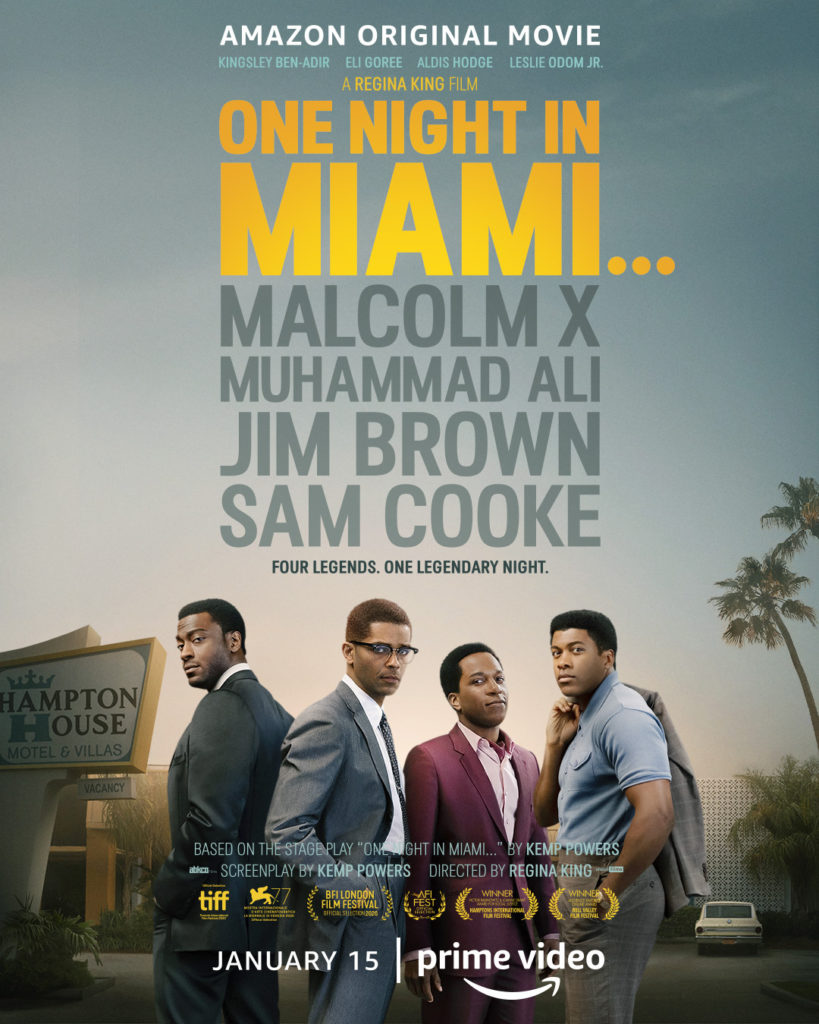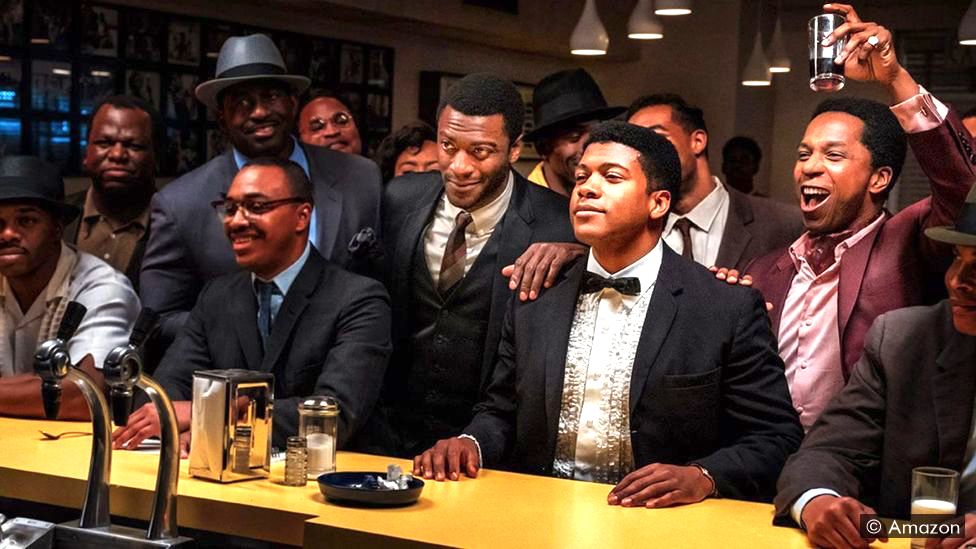The feature film debut of award-winning actress Regina King, which screened during the 56th Chicago International Film Festival last October, is now being released on Amazon Prime on January 15.
On one incredible night in 1964, four icons of sports, music, and activism gathered to celebrate one of the biggest upsets in boxing history. When underdog Cassius Clay, soon to be called Muhammad Ali, (Eli Goree), defeats heavy weight champion Sonny Liston at the Miami Convention Hall, Clay memorialized the event with three of his friends: Malcolm X (Kingsley Ben-Adir), Sam Cooke (Leslie Odom Jr.) and Jim Brown (Aldis Hodge). Based on the award-winning play of the same name, and directed by Regina King, “One Night In Miami” is a fictional account inspired by the historic night these four formidable figures spent together. It looks at the struggles these men faced and the vital role they each played in the civil rights movement and cultural upheaval of the 1960s. Nearly 60 years later, their conversations on racial injustice, religion, and personal responsibility still resonate.
Because of the Crusader’s extensive coverage during past film festivals—both locally and in other cities—we again gained access to the Chicago International Film Festival’s first virtual film fest (due to the pandemic). I was delighted to be able to watch this film, and the issues that were raised in what I view as a “Come to Jesus meeting” between these four men are truly relevant today. Cooke, Ali, Brown and Malcolm X were icons, and the film shows them at pivotal times in their careers—pivots that contributed much to the advancement of Blacks in the 60s and beyond.
Malcolm X was pensive about his continued longevity within the Nation of Islam, because he’s concerned about the Honorable Elijah Muhammad’s indiscretions regarding babies born to young women within the Nation. He was also paranoid that J. Edgar Hoover and the FBI were watching him.
He was ambivalent about joining since he was now the champion and was sure that this would alienate fans and supporters. Of course, his ego was massaged by acts of adoration aimed in his direction.

Shortly before travelling to Miami, Brown is called a nigger and told to “stay in his place” by a longtime family friend, and this didn’t sit well with him. It is probably around this time that he considers retiring from the NFL and putting more time and effort into his burgeoning acting career. Besides, he is quoted as saying it would be hard for him to give up white women and pork—if he joined the Nation of Islam. His first film was called “Rio Conchos,” and eventually act-ing alongside beautiful actresses such as Raquel Welch was right up his alley.
Cooke faced prejudice at the Copacabana even after having received a bit of fame with his hit “You Send Me,” and he needed a wake-up call. Malcolm X urges Cooke to sing more uplifting songs and noted that “Blowin’ in the Wind” had been quite successful for Bob Dylan.
He teased Cooke, saying that he could be just as popular and respected, if he pulled away from singing secular songs.
The film goes on to show other events of that historic night and also validates that Malcolm X’s advice to Cooke was solid—the film closes with Cooke’s performance of “A Change is Gonna Come.”
As Cooke notes in the film, “Everybody says they want a piece of the pie. I don’t. I want the goddam recipe.” Take a look at the trailer: https://www.youtube.com/watch?v=8TO3gp3j8_4&feature=youtu.be.






